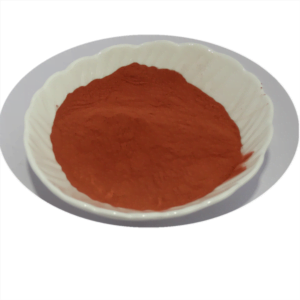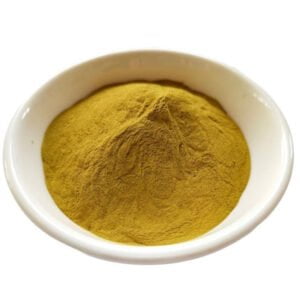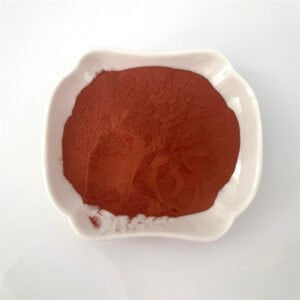3D kovové prášky vyráběné chemickou depozicí z par
Obsah
Představte si, že vytváříte složité struktury vrstvu po vrstvě, atom po atomu, pomocí síly chemie. To je podstata Chemické napařování (CVD), technologie, která mění svět materiálových věd, zejména v oblasti kovových prášků.
Co je chemické napařování (CVD)?
Představte si CVD jako sofistikovanou malířskou techniku, která však místo pigmentů využívá plynné prekurzory, jež se rozkládají a ukládají atomy kovů na substrát, čímž vytvářejí trojrozměrnou strukturu. Toto řízené nanášení umožňuje vytvářet vysoce čisté, jemnozrnné a přesně tvarované kovové prášky. s jedinečnými vlastnostmi.
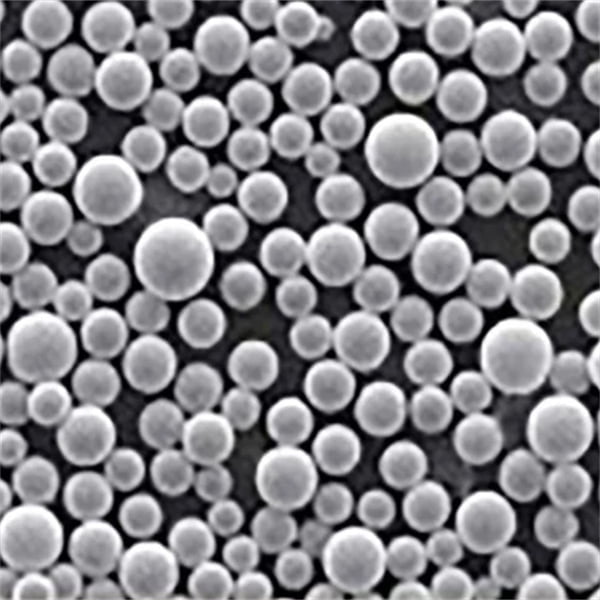
Typ kovových prášků vyráběných Chemické napařování
CVD se může pochlubit schopností vyrábět rozmanité spektrum kovových prášků, z nichž každý má své vlastní vlastnosti a použití. Pojďme se ponořit do fascinujícího světa některých významných příkladů:
- Wolfram (W): Proslulý svými výjimečnými vysoký bod tání, pevnost a odolnost proti korozi., wolframový prášek je šampionem v různých průmyslových odvětvích. Nachází uplatnění v vlákna žárovek, svářecí elektrody a pancéřové střely.. Kromě toho jeho složité struktury, jako jsou nanodrátky a nanotrubičky, otevřely dveře v oborech, jako je elektronika a katalýza.
- Molybden (Mo): Molybdenový prášek, který je podobný wolframu, nabízí vynikající vlastnosti. pevnost při vysokých teplotách a odolnost proti korozi. Hraje klíčovou roli v letecké komponenty, chladiče a elektrické kontakty..
- Rhenium (Re): Často používané ve spojení s wolframem díky svým podobným vlastnostem práškové rhenium dále zvyšuje pevnost a výkon při vysokých teplotách. Nachází uplatnění v součásti proudových motorů, lopatky turbín a vlákna pro vysoce výkonné osvětlení..
- Tantal (Ta): Šampion odolnost proti korozi a biokompatibilita, tantalový prášek se široce používá v lékařské implantáty, kondenzátory a zařízení pro zpracování chemikálií.. Díky své schopnosti odolávat náročným podmínkám je ve specifických aplikacích nenahraditelný.
- Nikl (Ni): Práškový nikl je všestranný kov, který nachází uplatnění v nejrůznějších oblastech. Jeho vynikající magnetické vlastnosti aby byla cenná v elektromagnety, baterie a katalyzátory.. Kromě toho je jeho odolnost proti korozi je vhodný pro aplikace v námořním a chemickém inženýrství.
- Kobalt (Co): Známý pro své magnetické vlastnosti a pevnost při vysokých teplotách, kobaltový prášek hraje důležitou roli v permanentní magnety, řezné nástroje a povlaky odolné proti opotřebení.. Díky své schopnosti zachovat si magnetismus při vysokých teplotách má zásadní význam pro různé technologické pokroky.
- Železo (Fe): Železný prášek, nejrozšířenější kov na Zemi, změnil různá průmyslová odvětví. Je široce používán v prášková metalurgie, pro výrobu magnetických jader v transformátorech a třecích materiálů pro brzdy.. Díky své cenové dostupnosti a všestrannosti je základem různých aplikací.
- Měď (Cu): Proslulý svými vynikající elektrická a tepelná vodivost, měděný prášek má rozmanité využití v elektronika, chladiče a vodivé povlaky.. Díky své schopnosti účinně přenášet teplo a elektřinu je klíčovým hráčem v různých technologických pokrocích.
- Titan (Ti): Ceněný pro svou výjimečný poměr pevnosti a hmotnosti, odolnost proti korozi a biokompatibilita., titanový prášek se hojně používá v letecké komponenty, lékařské implantáty a sportovní zboží.. Díky své jedinečné kombinaci vlastností je velmi vyhledávaným materiálem v náročných prostředích.
- Niob (Nb): Často se používá v slitiny s jinými kovy, nabídka práškového niobu vysoká pevnost a supravodivost při nízkých teplotách.. Nachází uplatnění v proudové motory, supravodivé magnety a jaderné reaktory.. Díky své schopnosti odolávat extrémním podmínkám je cenný pro pokročilé technologické aplikace.
Pohled na aplikace kovových prášků CVD
Jedinečné vlastnosti kovových prášků CVD se promítají do široké škály aplikací v různých průmyslových odvětvích:
| Průmysl | Aplikace |
|---|---|
| Elektronika | Kondenzátory, elektrické kontakty, chladiče |
| Aerospace | Součásti proudových motorů, lopatky turbín, trysky raket. |
| Lékařský | Implantáty, chirurgické nástroje, zubní výplně |
| Automobilový průmysl | Katalyzátory, vstřikovače paliva, součásti motoru |
| Chemické zpracování | Reaktory, čerpadla, ventily |
| Konstrukce | Stavební materiály, nátěry, spojovací materiál |
| Energie | Solární články, palivové články, baterie |
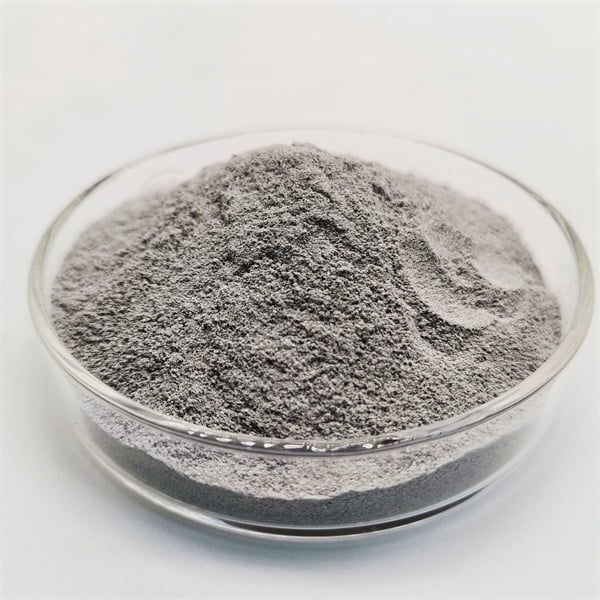
Specifikace, velikosti a třídy kovových prášků CVD
Kovové prášky CVD se dodávají v různých specifikacích, které vyhovují různým aplikačním potřebám.
| Parametr | Popis |
|---|---|
| Velikost částic | Obvykle se pohybuje od nanometrů až mikrometrůa nabízí tak přesnou kontrolu nad vlastnostmi materiálu. |
| Čistota | Může dosáhnout až 99,99% pro specifické aplikace |
Známky se liší v závislosti na kovu a požadovaných vlastnostech, často včetně:
- Standardní třída: Aplikace pro všeobecné použití vyžadující dobrou celkovou kvalitu.
- Třída vysoké čistoty: Náročné aplikace, kde je čistota kriticky důležitá, jako je elektronika a lékařské implantáty.
- Sférická třída: Nabízí vynikající tekutost a hustotu balení, což je cenné pro aplikace v práškové metalurgii.
Ceny a dodavatelé kovových prášků CVD
Cena kovových prášků CVD se výrazně liší v závislosti na konkrétním kovu, čistotě, množství a požadovaných specifikacích. Obecně, vyšší čistota a jemnější velikost částic vedou k vyšším cenám..
Zde je tabulka s odhadovanými cenami některých běžně dostupných kovových prášků CVD:
| Kovový prášek | Odhadované cenové rozpětí (USD/kg) |
|---|---|
| Wolfram | $100 – $500 |
| Molybden | $50 – $200 |
| Rhenium | $1,000 – $10,000 |
| Tantal | $200 – $1,000 |
| Nikl | $10 – $50 |
| Kobalt | $20 – $100 |
| Žehlička | $2 – $10 |
| Měď | $10 – $30 |
| Titan | $50 – $200 |
| Niob | $100 – $500 |
Dodavatelé kovových prášků CVD lze nalézt po celém světě, přičemž různé společnosti se specializují na konkrétní kovy a aplikace. Mezi nejvýznamnější patří:
- Americké prvky
- Alfa Aesar
- Carpenter Technology Corporation
- Höganäs AB
- Technologie povrchů Praxair
Výhody a omezení CVD Kovové prášky
Kovové prášky CVD mají oproti tradičním výrobním metodám několik výhod:
- Vysoká čistota: Dosahuje výrazně vyšší úrovně čistoty ve srovnání s jinými technikami, jako je prášková metalurgie.
- Jemnozrnná struktura: Umožňuje vytvářet prášky s přesnou kontrolou velikosti a morfologie částic, což vede k jedinečným vlastnostem.
- Vlastnosti na míru: Umožňuje přesnou kontrolu nad složením a strukturou prášku, což vede k přizpůsobení vlastností materiálu.
- Složité tvary: Může vyrábět prášky složitých tvarů, což otevírá dveře pro pokročilé aplikace.
CVD má však také některá omezení:
- Náklady: Tento proces může být ve srovnání s tradičními metodami nákladný, zejména při velkovýrobě.
- Pomalá rychlost usazování: Výroba velkého množství prášku může být časově náročná vzhledem k povaze procesu po vrstvách.
- Omezený výběr materiálů: Ne všechny kovy lze efektivně vyrábět pomocí CVD, a to kvůli faktorům, jako je dostupnost prekurzorů a kompatibilita procesu.
Výběr správného CVD Kovový prášek
Výběr optimálního kovového prášku pro CVD vyžaduje pečlivé zvážení několika faktorů:
- Požadavky na použití: Určete specifické vlastnosti potřebné pro zamýšlené použití, jako je pevnost, vodivost nebo odolnost proti korozi.
- Omezení nákladů: Zhodnoťte rozpočet a porovnejte ceny různých prášků s různými specifikacemi.
- Dostupnost: Ujistěte se, že vybraný prášek je snadno dostupný od spolehlivých dodavatelů v požadovaném množství.
- Kompatibilita zpracování: Zvažte kompatibilitu prášku s vašimi stávajícími výrobními procesy a zařízeními.
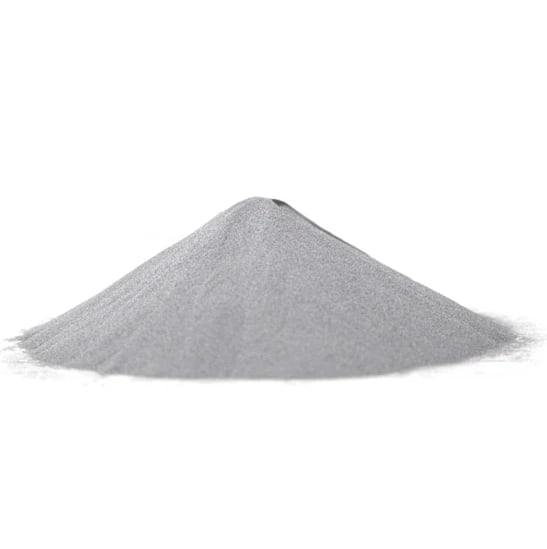
FAQ
Otázka: Jaké jsou dopady výroby kovového prášku metodou CVD na životní prostředí?
Odpověď: CVD může zahrnovat použití nebezpečných chemikálií a pro minimalizaci dopadu na životní prostředí jsou zásadní správné postupy likvidace. Kromě toho je třeba vzít v úvahu spotřebu energie při tomto procesu.
Otázka: Jak si CVD vede v porovnání s jinými metodami výroby kovového prášku?
Odpověď: Každá metoda má své výhody a nevýhody. V porovnání s tradičními metodami, jako je atomizace, nabízí CVD vyšší čistotu a jemnější kontrolu vlastností prášku, ale je obecně pomalejší a dražší.
Otázka: Jaké jsou budoucí trendy pro kovové prášky CVD?
Odpověď: Budoucnost kovových prášků CVD vypadá slibně, protože technologický pokrok vede k rychlejšímu nanášení, širšímu výběru materiálů a potenciálně nižším nákladům. Kromě toho probíhá výzkum zaměřený na nové aplikace v různých oblastech, což dále rozšiřuje potenciál této všestranné technologie.
Závěr
Kovové prášky CVD představují revoluční pokrok ve vědě o materiálech, nabízejí jedinečné vlastnosti a umožňují vytvářet pokročilé komponenty v různých průmyslových odvětvích. Díky své schopnosti vyrábět vysoce čisté, jemnozrnné a přesně přizpůsobené prášky CVD nadále posouvá hranice možností ve světě materiálů a inženýrství. S postupujícím výzkumem a vývojem můžeme očekávat ještě zajímavější aplikace a pokroky v této transformační technologii.
Sdílet na
MET3DP Technology Co., LTD je předním poskytovatelem řešení aditivní výroby se sídlem v Qingdao v Číně. Naše společnost se specializuje na zařízení pro 3D tisk a vysoce výkonné kovové prášky pro průmyslové aplikace.
Dotaz k získání nejlepší ceny a přizpůsobeného řešení pro vaše podnikání!
Související články

Vysoce výkonné segmenty lopatek trysek: Revoluce v účinnosti turbín díky 3D tisku z kovu
Přečtěte si více "O Met3DP
Nedávná aktualizace
Náš produkt
KONTAKTUJTE NÁS
Nějaké otázky? Pošlete nám zprávu hned teď! Po obdržení vaší zprávy obsloužíme vaši žádost s celým týmem.

Kovové prášky pro 3D tisk a aditivní výrobu
SPOLEČNOST
PRODUKT
kontaktní informace
- Město Qingdao, Shandong, Čína
- [email protected]
- [email protected]
- +86 19116340731











